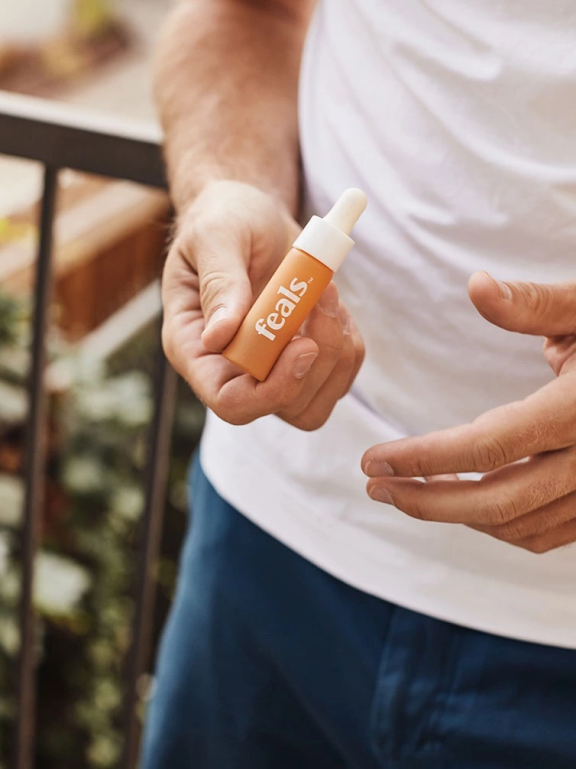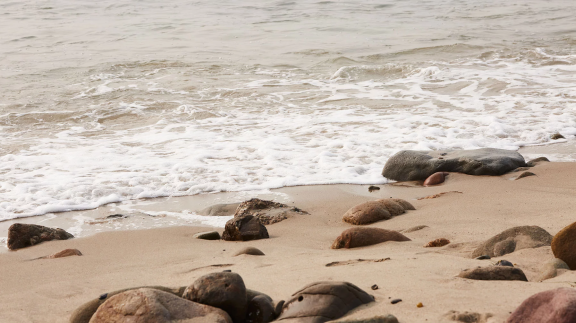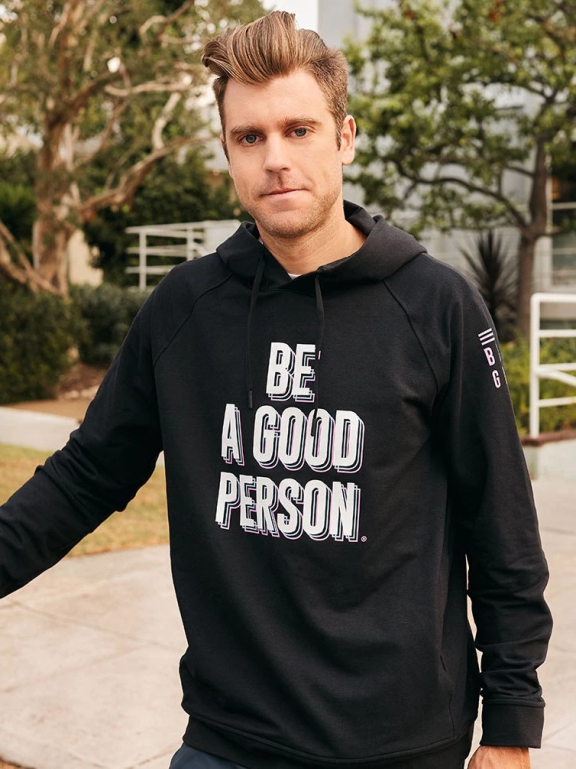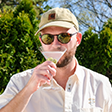We believe in the power of routines and finding meaning in the ways we sew comfort into our everyday surroundings. Drop Ins is a series that explores just that, taking a dressed-down look at the lives of people who inspire us.
Alex Deibold had a singular focus for his entire life: snowboarding. The Vermont native grew up with Olympic dreams which he made good on in 2014, winning a bronze medal in snowboard cross at the Sochi Games. The 34-year-old was named to the national team the year he graduated from high school. He has spent his entire adult life consumed by the year-round demands of an Olympic athlete. Which means: get up and train, every day. There are no breaks.
But last year he took a job as head of community for Lululemon on the west coast. He relocated to Los Angeles, where he reacquainted himself with his road bike on the steep peaks he can see from his home on the city’s west side. He went from the Olympic Training Center to a morning commute. His schedule changed….dramatically. He replaced reps at the Training Center with a 9 to 5. He still has an eye on the 2022 Games in Beijing but these days he’s focusing on himself and his mental health.
We caught up with Deibold to chat about mental health during quarantine, the rush of bombing a hill at 40 mph, and how an Olympic medal doesn’t really change much.
Covid has actually allowed me to get back into a routine that I'm more familiar with. When I moved to LA to work with Lululemon it was a major shift in my priorities. When you're working as much as I have been it really limits the amount of time that I've had to train at the level that I'm used to.
The pandemic has encouraged me to get up earlier and ride my bike before work, or go surf. I’m a big fan of the sunrise surf session or 6:30 a.m. bike ride. I make a commitment to get up at, like, 5:45 a.m. or 6:00 a.m. three days a week. Sleep is pretty important to me, and I definitely consider myself to be more of a night owl. But it’s such a great way to start the day to get up at 5:45, make some coffee, eat a banana, and jet into the water for an hour. I make an effort to be active in the morning because it helps me focus. Even if I’m tired I feel so much better when I do something first thing in the morning.

Cycling helps me clear my head and center my thoughts.
What I have come to realize during the pandemic — because I've been a cyclist for a long time — is that I used to always think that cycling was where I would go to think. I'd go and come up with creative ideas. And now I'm realizing that cycling is my escape.
It doesn't matter how stressed or busy I am. Or if I've been dealing with some anxiety and depression, like most people. But I realized that cycling is a time that I can go out and just be free of everything—and pour myself into the bike. I like to ride really fast, and it's this mental focus — similar to what I get in snowboarding — when I'm descending some hill really quickly there's literally nothing else that exists in the world other than me and what's directly in front of me. Cycling is this huge release and escape from a lot of the stressors that are going on and I've had this clarity around how I use that.
I’ll admit to being a gym snob. I’ve always had access to the top training facilities and so now that I don’t I was like, well, I can’t workout at home. I need all of the best equipment to get a real workout in.
But because of Covid I'm like, okay, with a little bit of focus and some creativity you can get in really good shape at home. I have a pair of dumbbells, a yoga mat, and it has really opened my eyes to what is possible at home.

It’s hard for me to say because it happened and I don't know what my life would've been like if it hadn't. Basically an Olympic medal gave me a platform to stand on.
It didn't really change my day-to-day life, to be honest with you. The spring and summer of 2014 I was really fortunate to have a lot of speaking opportunities where I could make a significant amount of money which I had never been able to do before.
But I still held down a part-time job at a bike shop for the next couple years.
It’s a big misconception because people see Michael Phelps and Shaun White and Lindsay Vonn—these stars that make millions of dollars at the Olympics. But I was fortunate, I definitely capitalized financially on my medal but it did not change my day-to-day life. I still had to have a job to pay my bills. I definitely had some corporate sponsors, but it didn't change my day-to-day life. You sort of wake up the next day and you're like, well, I'm still me.
Years of experience and perspective. And I went through this cycle for a few years, obviously in 2018 being a particularly challenging one [Deibold did not make the 2018 Olympic team], but even the other years in between those the snowboard season would end, and regardless of how successful or challenging it had been, the springtime would roll around and I would go through this seasonal depression because I had had this drive and this focus and this purpose—then the season ends and all of a sudden you don't have that and so you're just sort of left sitting like, What am I doing with my life? What now?
I really struggled with depression every springtime for a couple of years and I think that looking back on that now I was coming to the realization that snowboarding was not my life's purpose. It was something that I love, it's something that I'm incredibly dedicated to, it's something that I am forever grateful for but it is not my life's purpose.

Covid has exposed a lot for me. I think that I hid behind my busy-ness for a long time. Whether that was training for snowboarding or my new career. I commit 100% and Covid forced me to slow down. It forced everyone to slow down and it exposed a lot of things that I was running and hiding from—internal issues that I didn't want to deal with. That slowdown has forced me to take account of what is important to me. You have a finite amount of time so how are you going to prioritize that time? And that's why I make an effort to get up early now.
Before Covid I would get up early maybe once a week to do something for work. Part of my job was to go and workout with people. But I'm like you know what? Physical activity is such a key to my mental health. I need to prioritize time to do that five days a week. It could be 20 minutes of yoga, a really hard strength workout in my living room, or a two-hour bike ride.


But Covid forced me to really take a look in the mirror: how am I going to take care of my mental health? Because I had been running from it. I think it was just like, you know you have that closet and you throw everything in and think oh, I'll deal with it later. I was doing that with my brain and my mental health. I'll get to that. I'll get to that. Then Covid sort of forced the door open and it was like, OK Alex, you've got to organize this stuff. And so it's just forced me to prioritize what's most important to me.
Alex Deibold was photographed in Venice on September 15, 2020 by Isabella Behravan. You can keep up with Deibold over on Instagram.
